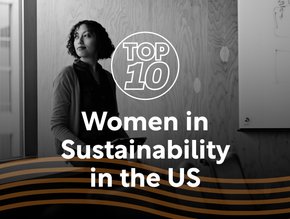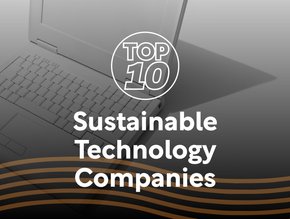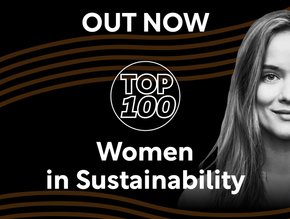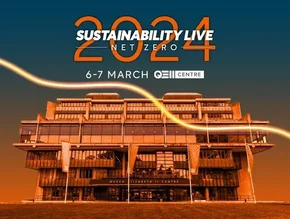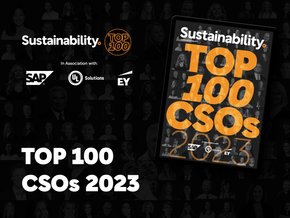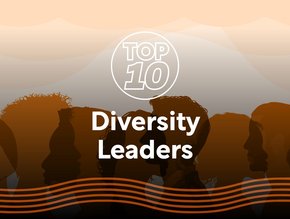Top 10: Sustainability Certifications
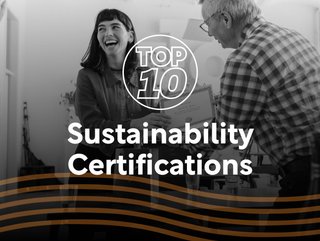
How do companies demonstrate their commitments to sustainability?
Gone are the days where corporates could simply preach their achievements and expect customers and partners to take that as gospel. The world we live in today is full of data and insight that is increasingly important in business claims—transparency is now the key to cementing their actions.
However, when it comes to certification, there are a number of different ones that focus on specific actions or businesses holistically. With that in mind, and to highlight the breadth of sustainability, here are some of the top sustainability certifications spanning energy and consumer goods.
This list is non-exhaustive as more accreditations focus on specific areas of business and certain types of product.
ISO 14001
Addressing one of the major issues faced globally, corporations have a duty to consider the many facets of their operations and their worldwide impacts.
The International Organization for Standardization governs many quality standards that businesses will have seen implemented across manufacturing and operations, but the ISO 14001 is focused solely on the environmental impact of a company. Alongside this is the ISO 14004—the world’s most widely used environmental management system (EMS).
The standard is set to ensure legal obligations are met and companies recognise their environmental impacts. The certificate is issued to more than 360,000 organisations.
Leadership in Energy and Environmental Design (LEED)
A globally recognised certification, LEED by the US Green Building Council (USGBC) addresses some of the key reporting and accountability requirements of the construction sector, which naturally links to the renewable energy sector.
LEED incorporates various factors, including sourcing of materials for both exterior build and interior design, finished building efficiency and maintenance requirements, and the impacts of development on the local community.
ENERGY STAR
This certification, put simply, recognises a building that operates more efficiently than 75% of similar structures nationwide. Accreditation of the ENERGY STAR is based on the Environmental Protection Agency’s (EPA) 1 - 100 score. Meeting the 75% target qualifies buildings for this certification and reflects the high-efficiency energy systems.
To retain the ENERGY STAR, structures undergo annual verification to retain the status—a process carried out by licensed professionals. We see this model as a means of continuous improvement the more organisations or developers strive to meet it.
Basing the cert on overall national performance allows consistent raising of the bar, which is a great way of leveraging accreditation to influence the wider built environment.
B Corporation
One of the latest certifications that small-to-medium enterprises (SMEs) strive for is the B Corporation logo, which recognised businesses based on their sustainability credentials—from the nature of their finished products to the supply implications of their companies.
With more than 8,100 B Corps registered globally—across 95 countries—the certification covers 161 industries and highlights the great work of more than 745,000 employees of sustainability-focused businesses. B Corporation devised a holistic approach to recognition that incorporates a business’s environmental and social engagements to determine that all inputs are compliant and outputs present benefits to the wider community.
FairTrade
A long-standing certification that encourages supply chain equity, the FairTrade movement was founded in 1992 and the FAIRTRADE Mark is seen across thousands of consumer goods, namely products like chocolate, coffee, and other products with imported ingredients or internationally outsourced labour.
Not only does this show commitment from corporations, but also supports fair wages for small farms and businesses that have historically suffered from corporate power.
Rainforest Alliance Certified™ Seal
The Rainforest Alliance is committed to the natural environment and was built to influence organisations to spread the word about climate impact through its Rainforest Alliance Certified™ Seal.
The Seal recognises works to address environmental protection, social equity, and economic viability—the three key pillars of sustainability. This includes:
Environmental Conservation: Initiatives that preserve natural ecosystems, safeguard biodiversity and aquatic environments, minimise the use of agricultural chemicals, and encourage the rehabilitation of native habitats.
Social Fairness: Committing to equitable practices and favourable work environments for employees, honouring the rights of indigenous and community groups, and advancing equal opportunities and educational access for all genders.
Economic Sustainability: Supporting agriculturalists to enhance their yield and the quality of their goods, potentially resulting in higher earnings and more reliable markets for their offerings.
Forest Stewardship Council (FSC)
The FSC was founded in 1993 as an international nonprofit dedicated to promoting sustainable forest management globally. It ensures forestry practices are environmentally sound, socially beneficial, and economically viable via standards and certification for wood and forest products, aiding consumers in identifying responsibly sourced items.
The FSC's comprehensive criteria encompass biodiversity protection, workers' and indigenous rights, offering Forest Management (FM) and Chain of Custody (CoC) certifications to verify sustainable practices from forest to final product. Operating in over 80 countries, the FSC is a key player in advancing sustainable forestry, supported by businesses, consumers, and environmentalists.
Green Seal
The Green Seal certification, established in 1989, is awarded by a US-based nonprofit to products and services meeting rigorous ecological and health criteria, promoting environmental sustainability. It covers a wide range of categories, including cleaning products, paints, and construction materials, focusing on minimising environmental impact. Certification criteria include waste reduction, energy and water efficiency, reduced greenhouse gas emissions, and health safety.
Green Seal’s aim is to improve environmental performance and guide consumers towards eco-friendly choices, acting as a guide for sustainable purchasing across various sectors.
SA8000
SA8000, established by Social Accountability International in 1997, is a global certification standard that ensures ethical practices in organisations across industries. It focuses on fair treatment of workers, covering issues like child and forced labour, health and safety, freedom of association, discrimination, working hours, and compensation.
Organisations must align with principles from the ILO, the Universal Declaration of Human Rights, and the UN Convention on the Rights of the Child for certification. Applicable universally, SA8000 aims to enhance worker welfare and promote responsible business practices, verified through third-party evaluations.
*******************
Make sure you check out the latest edition of Sustainability Magazine and also sign up to our global conference series - Sustainability LIVE 2024.
*******************
Sustainability is a BizClik brand.
- ‘Client Zero’ IBM’s Guide to Using AI for SustainabilitySustainability
- Could AI and Data Help Nestlé Make Coffee Climate Resilient?Sustainability
- Businesses are Getting Sustainability Dangerously WrongSustainability
- Why EY is Warning US & Americas Companies on SustainabilitySustainability

